MercoPress. South Atlantic News Agency
Economy
-
Wednesday, November 26th 2025 - 21:52 UTC
Latin America remains the world's most unequal region

The United Nations Economic Commission for Latin America and the Caribbean (ECLAC) warned in its latest report that Latin America continues to be the most unequal region globally, with extreme concentration of wealth stifling growth and social mobility.
-
Tuesday, November 25th 2025 - 19:36 UTC
Uruguay's Economy Minister hopeful about EU-Mercosur FTA deal

Uruguay’s Economy Minister Gabriel Oddone said Tuesday in Madrid that he was strongly confident that the long-delayed Free Trade Agreement (FTA) between the European Union (EU) and the Southern Common Market (Mercosur) will be signed shortly. Additionally, he voiced his concerns over the escalating military tensions in the Caribbean.
-
Tuesday, November 25th 2025 - 18:54 UTC
Lula troubled by interpreter's poor work at G20 Summit
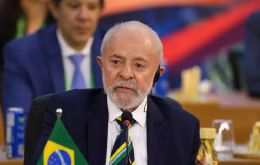
Brazilian President Luiz Inácio Lula da Silva was deeply troubled on the closing day of the G20 Summit in Johannesburg (South Africa) by an interpreter's unprofessional behavior. “Only [First Lady] Janja [da Silva] may whisper in my ear!” he stressed.
-
Monday, November 24th 2025 - 10:55 UTC
Lula foresees Mercosur-EU agreement will be signed on Dec. 20
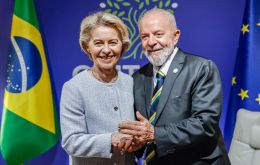
Brazilian President Luiz Inácio Lula da Silva said on Sunday at the G20 Summit in South Africa that the Free Trade Agreement (FTA) between the Southern Common Market (Mercosur) and the European Union (EU) would be signed on December 20. Lula, who holds the South American bloc's rotating presidency, has made the deal a priority.
-
Saturday, November 22nd 2025 - 10:17 UTC
Argentina and US sign strategic customs agreement
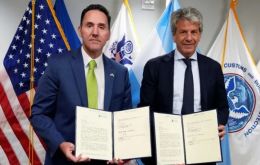
Argentina's Customs Revenue and Control Agency (ARCA) and the US Customs and Border Protection (CBP) signed an agreement in Washington on Friday to deepen bilateral cooperation, improve border security, and streamline trade through smart controls and 100% digital processes involving automation and digitization of passenger and cargo traffic.
-
Saturday, November 22nd 2025 - 10:00 UTC
Gigantic, sustainable ship makes landmark call in Montevideo

The Port of Montevideo achieved a major operational milestone on Friday by receiving the largest vessel ever to arrive in Uruguay's history, reaffirming the port's strategic importance as a regional hub.
-
Friday, November 21st 2025 - 18:28 UTC
Uruguay joins Trans-Pacific Partnership (CPTPP)
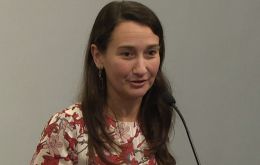
Uruguay has joined as a member of the Comprehensive and Progressive Agreement for Trans-Pacific Partnership (CPTPP), the Ministry of Foreign Affairs announced in Montevideo on Friday.
-
Friday, November 21st 2025 - 10:58 UTC
Trump removes 40% tariffs from 212 Brazilian items

US President Donald Trump has removed a 40% tariff on more than 200 Brazilian agricultural and livestock products, including beef, vegetables, coffee, cocoa, and some ammonia-based fertilizers. The decision follows negotiations with Brazilian President Luiz Inácio Lula da Silva.
-
Friday, November 21st 2025 - 10:26 UTC
Lubetkin foresees shift in trade difficulties for Uruguay
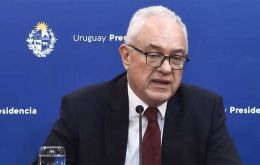
Uruguay's Foreign Minister Mario Lubetkin projected Thursday a major shift in the world's trade landscape, in which his country would need to focus on what to sell instead of to whom, given the surge of 31 tariff-free nations by 2026. Speaking to FocoUy, he framed the emerging trade environment as “practically entering a free trade area” with key global blocs.
-
Thursday, November 20th 2025 - 21:06 UTC
Paraguay finalizes first poultry shipment to Philippines
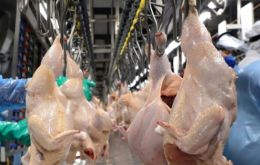
Paraguay has successfully completed its first-ever export of poultry meat to the Philippines, achieving a significant milestone in its strategy to expand trade with the Asian market. The inaugural shipment took place just two months after the Philippine market was officially opened to the South American country's poultry products, it was reported this week in Asunción.
